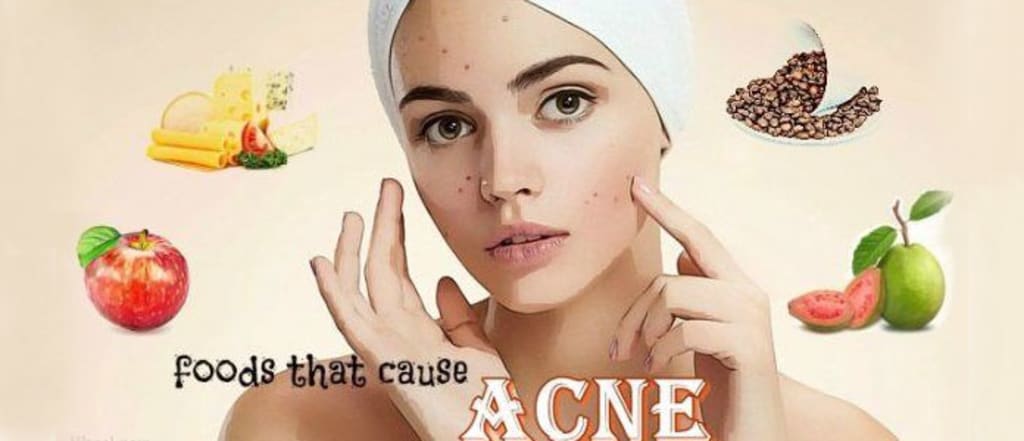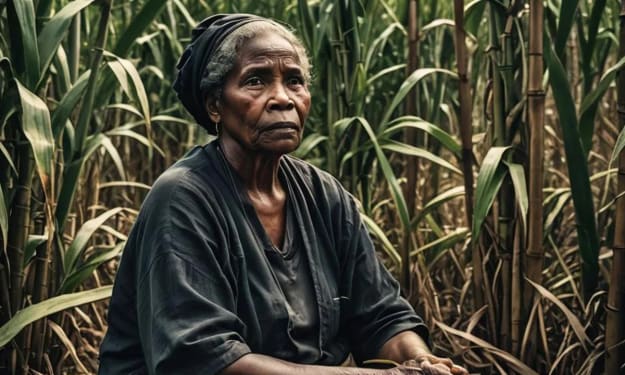Can Food Cause Acne? A List Of Food You Should Avoid If You Are Acne-Prone
Can Food Cause Acne?

We all want clear skin, don’t we? However, there are things which aren't in our control. Acne is one of them Acne is a skin condition that occurs when your hair follicles become clogged with oil and dead cells. It causes whiteheads, blackheads, or pimples. Few preventive measures should be taken for treating acne. Several foods cause acne that should be avoided. Dairy products and acne are rivals. There are several dairy products like cheese, butter, and skim milk that cause acne.
Acne is caused by sebum which is naturally producing oil in the skin to keep hair and skin moisturized. Dead skin cells can produce acne by blocking the pores where sebum is released. You can get the earliest relief from acne by contacting to the dermatologist and few dietary changes.
What food causes acne?
1- Refined grains and sugar
Refined grains or refined white flour are usually found in bread, pasta, or rice noodles. They have a high glycemic index that raises sugar levels. Insulin makes the androgen hormone more active which leads to faster cell growth that causes acne.
2- Skimmed milk
Skim milk causes most skin issues due to the addition of whey protein, hormones, and sugar in it. Hence it leads to skin problems like acne or pimples.
3- Fast food
You should avoid unhealthy, saturated, and trans fats like those found in fast foods. This causes inflammation in our body which results in skin disease like acne.
4- Fried foods
Eating greasy food does not only cause acne but also many skin problems. Deep-fried foods are acidic which ultimately causes inflammation in our body which causes acne and red patches on the skin.
5- Foods rich in omega-6 fats
Diets that are rich in omega-6 fatty acids like soy oil and corn are high to cause acne. Western diets mainly include foods that are rich in omega-6. This causes an imbalance between omega-3 and omega-6 fatty acids that ultimately leads to acne.
6- Chocolates
It is not completely proven that chocolate causes acne, but many researchers have found out that eating more quantities of chocolates may trigger acne.
7- Whey protein
Many fitness enthusiasts are highly dependent on whey protein for building their muscle mass. Whey protein has many health benefits but even it may affect our skin. Whey protein is a rich source of amino acid, leucine, and glutamine which makes skin cells grow and divide more which ultimately results in the formation of acne.
These foods are bad for acne and should be avoided for getting effective results.
What are the suitable foods for acne?
There are many kinds of foods that provide a proper amount of nutrients which helps you to get clear skin. Foods like green leafy vegetables, foods rich in omega-3 fatty acids, green tea, turmeric, foods rich in zinc like pumpkin seeds, sunflower seeds, chickpeas, and probiotics elements like yogurt and buttermilk help you keep acne at bay.
How does a dermatologist ease your acne problem?
There are various kinds of medical treatments for treating acne but it depends on various factors such as,
● What type of acne like blackheads, whiteheads, or pimples you have
● What treatments you have already tried
● What part of the skin is affected by acne
● Whether acne has affected you with dark spots
● And your age plays an important role in treating acne
Many dermatologists may prescribe topical treatments containing benzoyl peroxide, retinoids, antibiosis, or oral contraceptives. For severe acne conditions, laser or light therapy with variable results along with a prescribed diet may help you to cure acne.
When it comes to acne scars, if you are rid of acne but its scar or dark spots are bothering you, you can visit a dermatologist as they suggest many medical treatments like chemical peel, which helps you to remove acne scars and dark spots.
Prevalence and risk factor
Acne, pimples, and blackheads are the most common condition among teenagers and young adults. The highest risk of developing acne occurs between the ages of 12 to 25. Even sometimes older people are also prone to acne conditions due to hormonal change. Boys tend to develop acne more than girls, although girls are prone to acne during pregnancy, monthly menstruation, and with the use of oral contraceptives.
If you too feel that you have tried everything and it is the best time to see a dermatologist, you can consult a London dermatologist and start your acne treatment. As they have an award-winning team of dermatologists with decades of experience who would help you to treat acne with cutting edge technology and give utmost relief.
About the Creator
Enjoyed the story? Support the Creator.
Subscribe for free to receive all their stories in your feed. You could also pledge your support or give them a one-off tip, letting them know you appreciate their work.





Comments
There are no comments for this story
Be the first to respond and start the conversation.